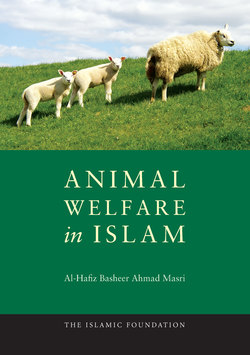Читать книгу Animal Welfare in Islam - Al-Hafiz Basheer Ahmad Masri - Страница 8
На сайте Литреса книга снята с продажи.
ОглавлениеPREFACE
QUITE A FEW of my friends have been surprised to learn that I have chosen ‘Animals’ as a subject to write on from the Islamic point of view. They feel that I should be more concerned with other multifarious problems which Muslims are facing these days and for which they need help and guidance in solving. The way I look at it, however, is that life on this earth is so inextricably intertwined as an homogeneous unit that it cannot be disentangled for the amelioration of one species at the expense of another.
All human problems – physical, mental or spiritual – are of our own creation and our wounds self-inflicted. By no stretch of imagination can we blame animals for any of our troubles and make them suffer for it.
There is no paucity of Muslim scholars and theologians who are far more qualified than me to expound theologically all sorts of such problems. Notwithstanding this, I feel that my practical experience of a lifetime in the field of animal welfare, combined with some theological knowledge, lays a moral responsibility on me to express my views candidly on the current spate of cruelties to animals. The learned theologians generally remain blissfully uninformed on this subject, which is generally beyond the pale of their normal responsibilities. Similarly, the general Muslim public is not fully aware of the scale on which pecuniary, selfish and short-sighted human interests have started exploiting the animal kingdom and are playing havoc with the ecological balance.
The most alarming and distressing predicament of this deplorable state of affairs is that our Islamic countries too have started treading in the footsteps of the West in the name of commerce and trade. No doubt we have a lot to learn from Western technology and science, but surely animal welfare and environmental conservation is not one of these subjects.
The Islamic instruction and guidance on animal rights and man’s obligations concerning them are so comprehensive that we need not go elsewhere for any guidance. As believers in the consummate and conclusive revelation of God, we are expected to learn from the misconceptions of the past and cast behind us the parochial approach to religion. Fourteen centuries is a long enough period to grasp mentally the fact that the way (Dīn) to spiritual development does not lie in ritualistic observance and the hair-splitting of the Law (Sharīʿah). Surely it is a long enough period to liberate ourselves from the pre-Islamic traits of our respective cultures.
Not to be cruel or even to be condescendingly kind to the so-called inferior animals is a negative proposition. Islam wants us to think and act in the positive terms of accepting all species as communities like us in their own right and not to sit in judgement on them according to our human norms and values.
I hope and pray that my Muslim brethren will fully appreciate the points I have touched upon here, after reading this book.
Although the whole of the book deals with the central theme of the welfare of animals and their relative status vis-à-vis man, each of the chapters has been treated as a subject on its own. Notwithstanding this, some overlapping could not be avoided. I therefore request that you do not hazard an opinion on any point before reading the complete book.
Al-Hafiz Basheer Ahmad Masri
